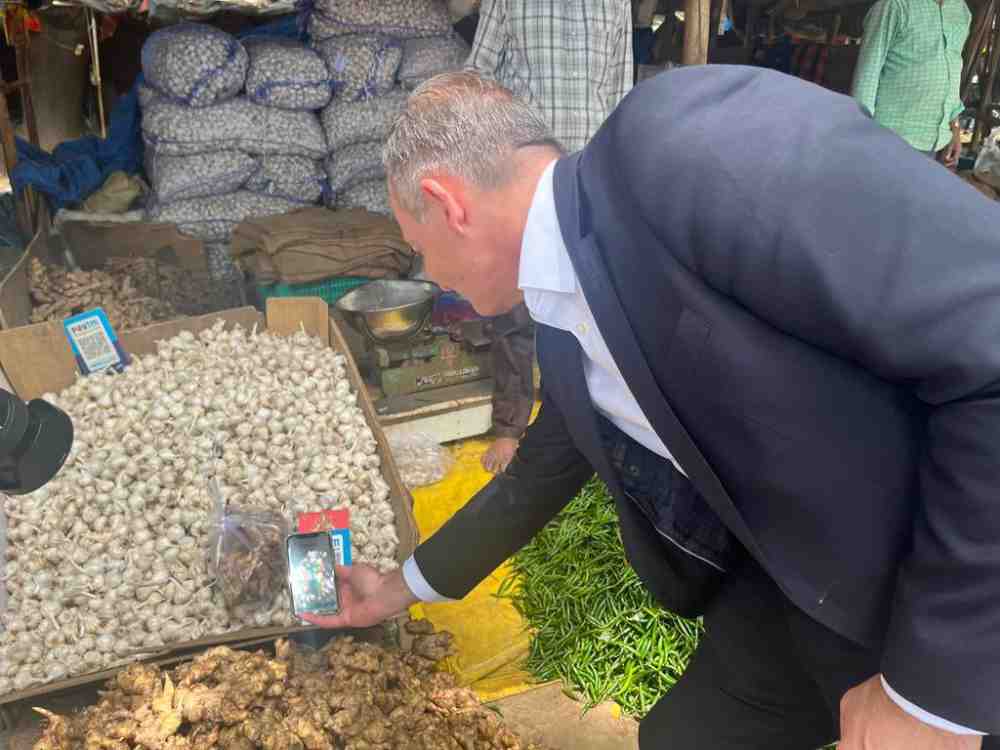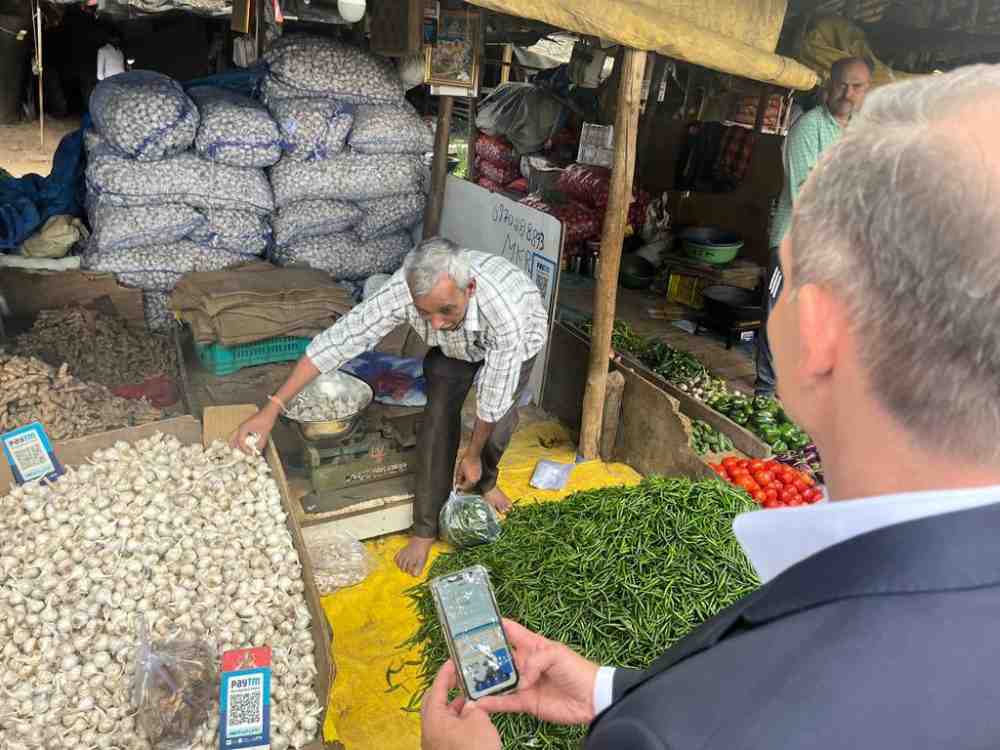xploring the Digital Realms: Volker Wissing’s Unique Encounter with UPI
In a surprising twist during his attendance at the G20 digital economy ministers meet in Bengaluru, Germany’s Federal Minister for Digital and Transport, Volker Wissing, ventured into India’s digital landscape with an audacious move. Wissing’s unconventional approach involved personally immersing himself in India’s thriving digital ecosystem and experiencing the Unified Payments Interface (UPI), one of the nation’s most popular digital systems. This initiative not only grabbed the attention of his home country but also provided a platform for him to exclusively converse with WION about his impressions and insights.
Embracing Digital India: Minister Wissing’s Firsthand Experience with UPI
During his visit to Bengaluru, Minister Wissing stepped out of the conventional diplomatic circle to explore the digital technologies that have seamlessly woven into the fabric of Indian society. At a local market, he engaged with UPI to purchase vegetables, revealing his genuine curiosity and eagerness to understand how digital technology has become an integral part of Indians’ daily lives. This candid interaction, captured on camera, underscored his appreciation for the practicality and ease with which UPI functions.

Impressions of a Digital Convert: Minister Wissing’s Observations
Minister Wissing was quick to express his amazement at the simplicity and efficiency of UPI in action. Drawing from his prior interactions with the individuals driving the digital initiatives, he remarked, “I was highly impressed to see how easy it is running in practice because I met the brains behind some days before.” He acknowledged the acceptance and proficiency with which people have embraced this digital system, highlighting how seamlessly it has integrated into their routines.
India’s Digital Revolution: A Cause for International Recognition
Wissing didn’t just stop at experiencing UPI; he also commended India’s leaps and bounds in the digital arena. He acknowledged the nation’s substantial progress and attributed it to the collective efforts of its people. He stated, “India made a lot of progress in the digital sector. And I think this is due to the engagement of so many people.” He went on to emphasize the significance of collaborations between Indian and German companies in the digital sector, foreseeing fruitful outcomes from this cooperation.
Common Goals: Germany and India’s Digital Trajectories
When asked about the differences between India’s digital infrastructure and Germany’s, Minister Wissing highlighted the shared pursuit of digitalization. He noted that while the two countries may have unique characteristics, their approach towards digital transformation aligns closely. “Our countries are different but we all make the same approach towards digitalisation, we need digitalisation,” he explained. The G20 negotiations provided a platform for both nations to engage in dialogue, fostering mutual learning and progress through collaboration.

A Promising Digital Discourse: Indo-German Collaboration
Minister Wissing remains optimistic about the future of a robust digital dialogue between India and Germany. He believes that this ongoing conversation will catalyze innovation and advancements in both countries. His proactive engagement with India’s digital landscape during the G20 digital economy ministers meet resonates with a growing trend of global leaders acknowledging India’s remarkable digital journey. This isn’t the first time such an interaction has taken place; last year, German Foreign Minister Annalena Baerbock’s use of UPI at Delhi’s iconic Chandni Chowk reflected a similar recognition of India’s digital strides.
In a world where digitalization is a driving force, such cross-border interactions are essential for nations to learn from each other, collaborate, and collectively shape the future of digital innovation. Minister Wissing’s endeavor serves as a testament to the growing importance of digital diplomacy and showcases India’s ever-evolving digital landscape on the global stage.
